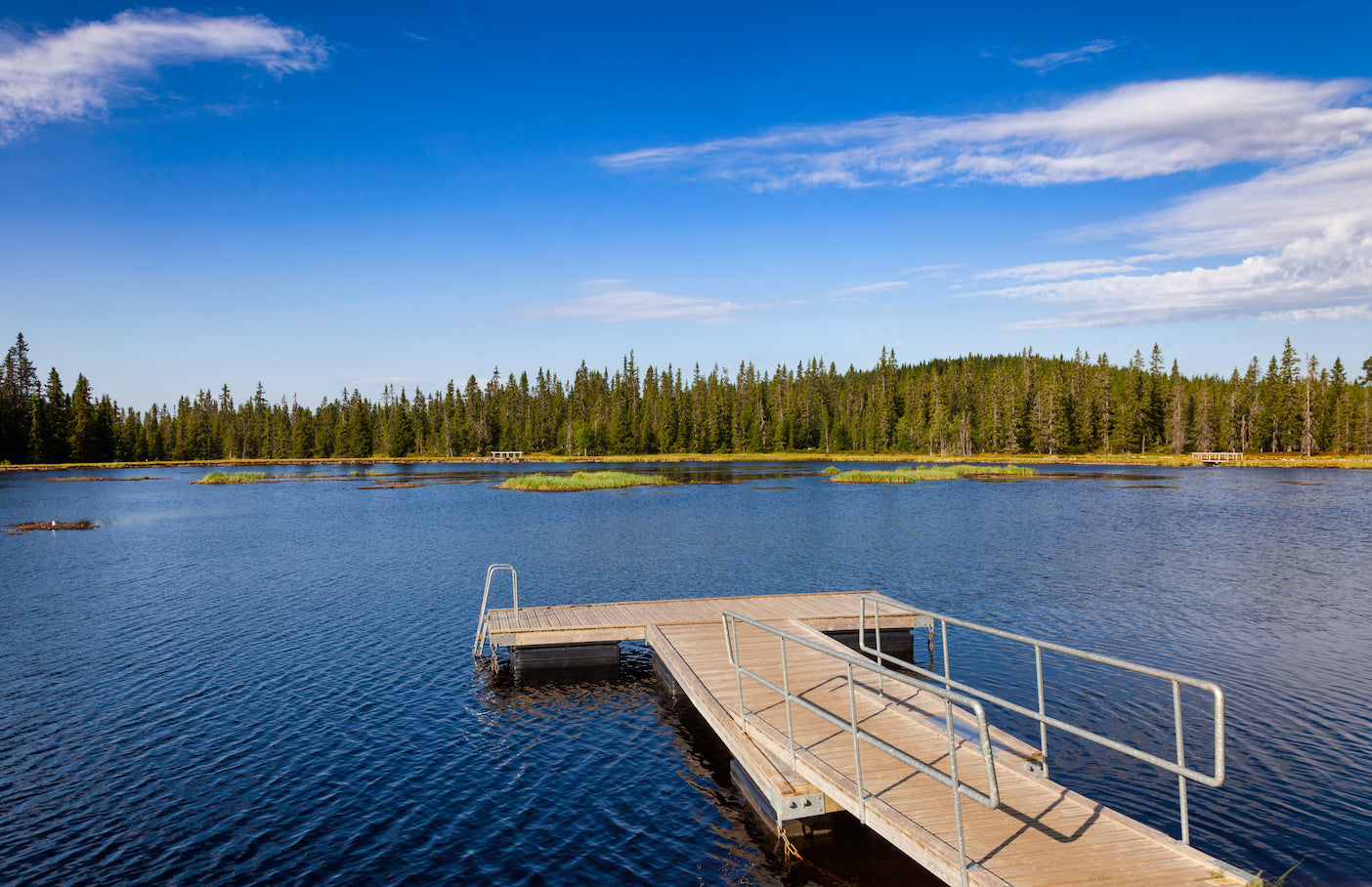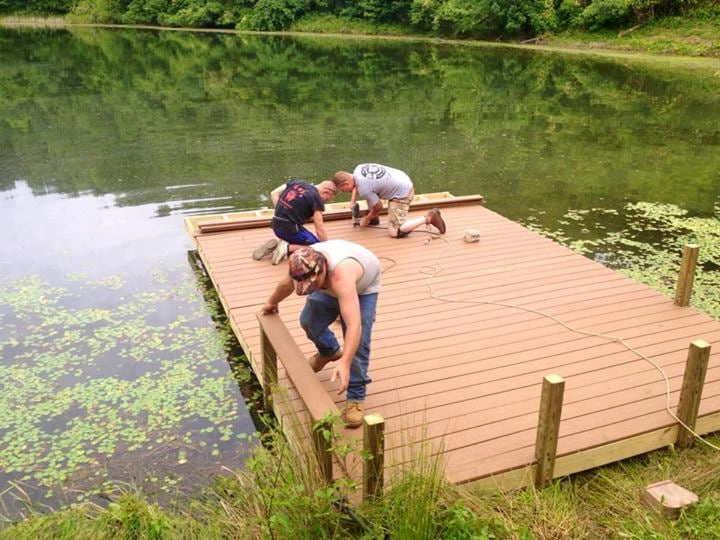Crafting Custom Solutions: Why a Floating Dock Builder is Important for Unique Demands
Crafting Custom Solutions: Why a Floating Dock Builder is Important for Unique Demands
Blog Article
Floating Docks: The Ideal Selection for Versatile Water Access
Floating docks present an engaging service for a range of water access requires, providing convenience that transcends traditional mooring alternatives. The modular nature of floating docks promotes modification, providing to details demands.
Benefits of Floating Docks
Floating docks deal numerous advantages that boost water accessibility for various applications. Their capacity to fall and rise with changing water levels makes them especially beneficial in environments with varying trends or seasonal variations. This flexibility makes certain that vessels can quickly moor without worry for the water's depth, giving a dependable system for entertainment, commercial, and industrial usages.
Additionally, floating docks are commonly built from sturdy products that withstand corrosion, making them suitable for long-term use in marine atmospheres. Their installment is commonly much less intrusive than traditional set docks, lowering the environmental influence and promoting quicker deployment (dock company). This flexibility enables much easier moving or reconfiguration according to user requirements or environmental changes
Security is an additional vital benefit; floating docks can offer steady access for people getting off or boarding from boats and minimize the danger of crashes related to unpredictable surfaces. In addition, they can be created to fit a selection of devices, such as cleats and fenders, enhancing functionality. On the whole, floating docks represent an effective service for boosting water gain access to throughout diverse markets while advertising safety and security and ecological sustainability.

Sorts Of Floating Docks
Numerous sorts of floating docks satisfy different needs and environments, each designed with particular attributes to optimize functionality. The most common kinds include modular docks, which are composed of interlocking areas that allow for simple modification and development. These docks are excellent for recreational usage, as they can be tailored to fit numerous watercraft dimensions and water conditions.
One more popular choice is the stationary floating dock, which stays secured in position however floats with altering water degrees. floating dock builder. This type is specifically fit for areas with very little tidal fluctuations, offering stable gain access to for fishing or swimming. Furthermore, there are drive-on docks, which include a sloped style that allows boats to conveniently drive on and off, making them appropriate for individual watercraft and smaller sized vessels
For commercial applications, sturdy floating docks are available, constructed from reinforced materials to hold up against substantial loads and rough aquatic environments. Environmentally friendly floating docks use sustainable materials and styles to lessen environmental impact, usually integrating attributes like plant life to sustain local wild animals. Recognizing the various sorts of floating docks guarantees that individuals can choose the most proper service for their particular needs.
Setup Process Overview
An effective installation of floating docks needs cautious preparation and interest to information to guarantee optimum efficiency and security. The preliminary step entails analyzing the site problems, including water depth, existing, and potential barriers. This analysis informs the choice of the suitable dock products and design customized to the particular environment.
Next, obtaining needed permits is important, as many jurisdictions have regulations relating to building on water bodies. The installation can proceed as soon as consents are safeguarded. Begin by preparing the structure, which might include anchoring systems or pilings customized to the dock kind and regional conditions.
Adhering to the foundation visit the website setup, construct the dock areas according to maker specs. Make certain that all components are safely attached and straightened to withstand environmental stress and anxieties. Placement the dock in the designated location, guaranteeing it is degree and steady.

Maintenance Tips and Best Practices
After the installation procedure is total, ongoing upkeep plays a crucial role in ensuring the durability and capability of floating docks. Regular assessments must be performed to determine any indicators of damage, degeneration, or wear - floating dock company. Look for any type of loose fittings, fractures, or separation in the dock areas, as these can endanger structural integrity
Cleaning the dock is important to get rid of debris, algae, and various other accumulation that can impact its look and safety. Use a gentle pressure wash periodically to preserve tidiness without triggering damages to the surface area. In addition, using a safety sealer every few years can assist boost long life and resist ecological wear.
Pay focus to the mooring lines and anchors, ensuring they are secure and cost-free from corrosion. Change any type of degraded components promptly to avoid hazards. Seasonal modifications might additionally be essential; throughout severe weather condition problems, reinforcing the dock or repositioning can protect against damages.
Applications for Floating Docks
Floating docks serve a multitude of applications, dealing with both entertainment and industrial demands. In leisure settings, they provide smooth access to waterways for tasks such as boating, official website angling, and swimming. Their adjustable nature enables setup in varying water levels, guaranteeing secure and safe gain access to no matter tidal changes.
Readily, floating docks are vital for marinas and beachfront organizations. They promote the docking of vessels, enabling effective filling and discharging of goods. Their modular layout permits very easy development or reconfiguration to fit transforming business needs, making them optimal for watercraft rentals, excursion procedures, or angling charters.
In addition, floating docks are used in environmental applications such as water study and habitat reconstruction. They can function as systems for clinical researches, keeping track of water quality, or carrying out wildlife studies without disturbing delicate environments.
In commercial contexts, floating docks are employed in building and construction tasks, offering access to hard-to-reach locations for tools and personnel. Their convenience, longevity, and very little effect on the setting make them an optimal selection for a vast array of applications, improving both functionality and ease of access in various water-based environments.
Conclusion
In verdict, floating docks stand for an optimal solution for varied water gain access to requires, owing to their adaptability, toughness, and modular style. These frameworks assist in secure mooring for different applications while lessening ecological effect during installation. The reduced upkeep demands better improve their usefulness. Because of this, floating docks function as a beneficial possession for leisure, business, and environmental tasks, see this here ensuring reputable access to waterways and advertising lasting practices in marine environments.
Floating docks present a compelling service for a range of water accessibility needs, providing convenience that goes beyond conventional mooring alternatives.Floating docks deal various benefits that enhance water accessibility for different applications. Generally, floating docks represent an effective service for improving water gain access to across diverse fields while advertising safety and security and environmental sustainability.
An additional prominent option is the fixed floating dock, which stays secured in location yet floats with altering water levels.In conclusion, floating docks stand for an optimal service for varied water accessibility requires, owing to their adaptability, sturdiness, and modular layout.
Report this page